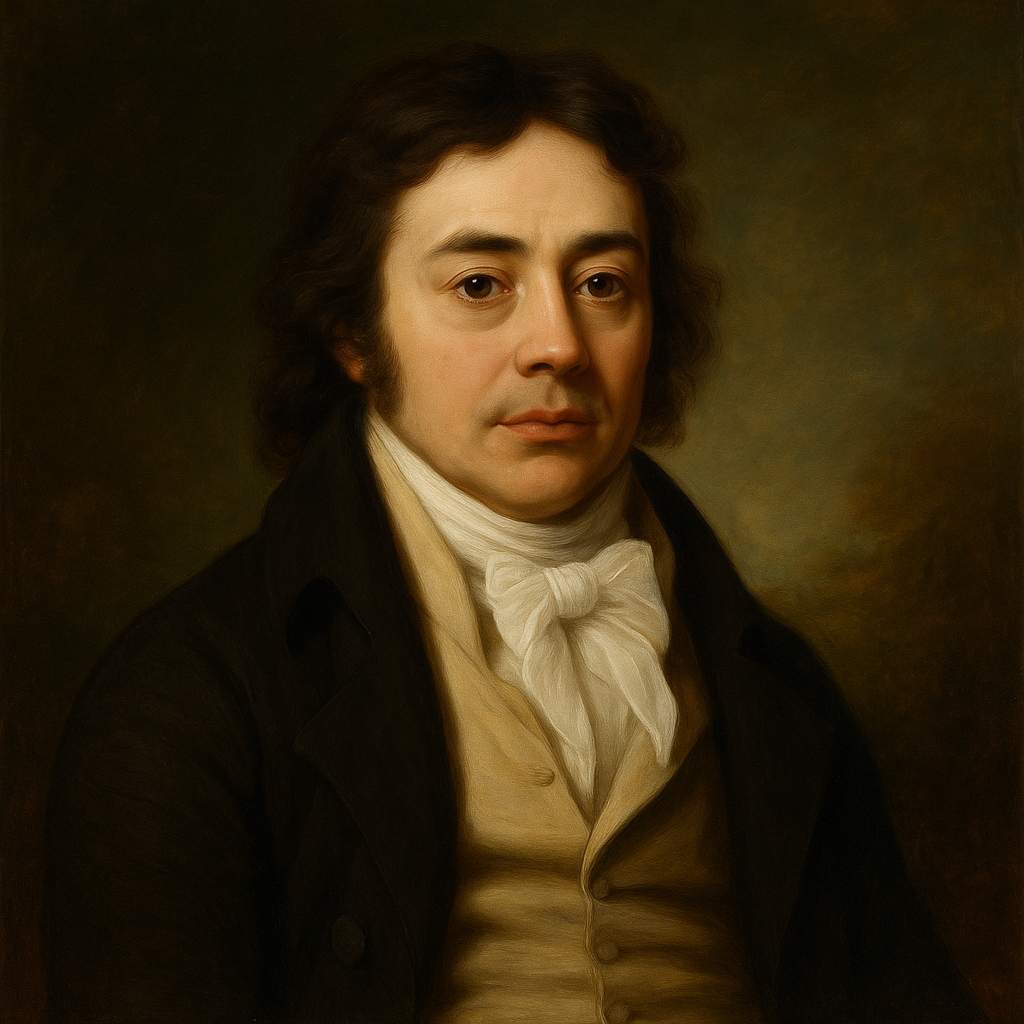Youth and Age
Samuel Taylor Coleridge
1772 to 1834

Track 1
Reconstruct the poem by dragging each line into its correct position. You can also use the up (↑) and down (↓) arrows to move a line one place at a time, or the top (⇑) and bottom (⇓) arrows to move a line directly to the top or bottom. Your goal is to reassemble the original poem as accurately as possible. As you move the lines, you'll see whether your arrangement is correct, helping you explore the poem's flow and meaning. You can also print out the jumbled poem to cut up and reassemble in the classroom. Either way, take your time, enjoy the process, and discover how the poet's words come together to create something truly beautiful.
Easy Mode - Auto check enabled
Like those trim skiffs, unknown of yore,
Thy vesper-bell hath not yet toll'd:—
That only serves to make us grieve,
I'll think it but a fond conceit—
It cannot be, that Thou art gone!
When Youth and I liv'd in't together.
This drooping gait, this altered size:
And tears take sunshine from thine eyes!
Ah! for the change 'twixt Now and Then!
With oft and tedious taking-leave,
O Youth! for years so many and sweet
Where no hope is, life's a warning
Flowers are lovely; Love is flower-like;
What strange disguise hast now put on,
Like some poor nigh-related guest,
And thou wert aye a masker bold!
Friendship is a sheltering tree;
This body that does me grievous wrong,
But springtide blossoms on thy lips,
That ask no aid of sail or oar,
That Youth and I are house-mates still.
That may not rudely be dismist.
O! the joys, that came down shower-like,
When I was young?—Ah, woful when!
Nought cared this body for wind or weather
How lightly then it flashed along:—
To make believe, that Thou art gone?
Tis known, that Thou and I were one,
Life is but thought: so think I will
That fear no spite of wind or tide!
Dew-drops are the gems of morning,
On winding lakes and rivers wide,
This breathing house not built with hands,
When we are old:
I see these locks in silvery slips,
Verse, a breeze mid blossoms straying,
With Nature, Hope, and Poesy,
But the tears of mournful eve!
That only serves to make us grieve
Of Friendship, Love, and Liberty,
Both were mine! Life went a maying
Which tells me, Youth's no longer here!
When I was young!
Ere I was old.
Ere I was old? Ah woful Ere,
Where Hope clung feeding, like a bee—
O'er aery cliffs and glittering sands,
Yet hath outstay'd his welcome while,
And tells the jest without the smile.


